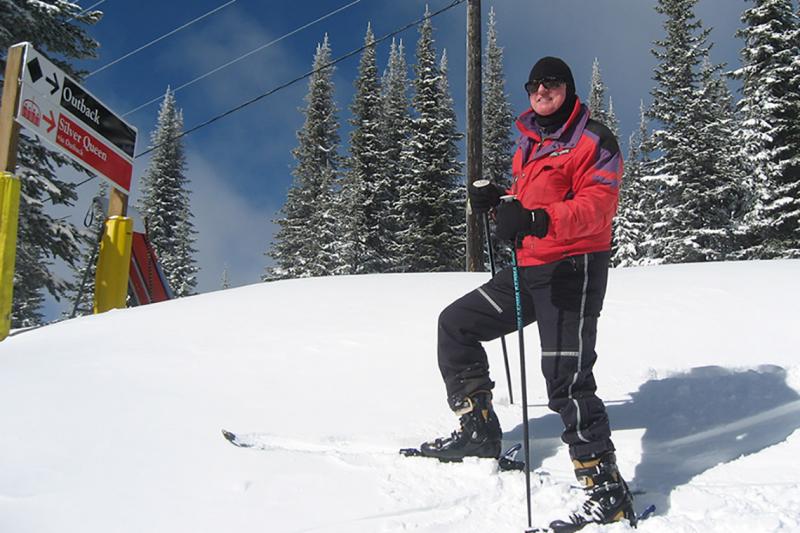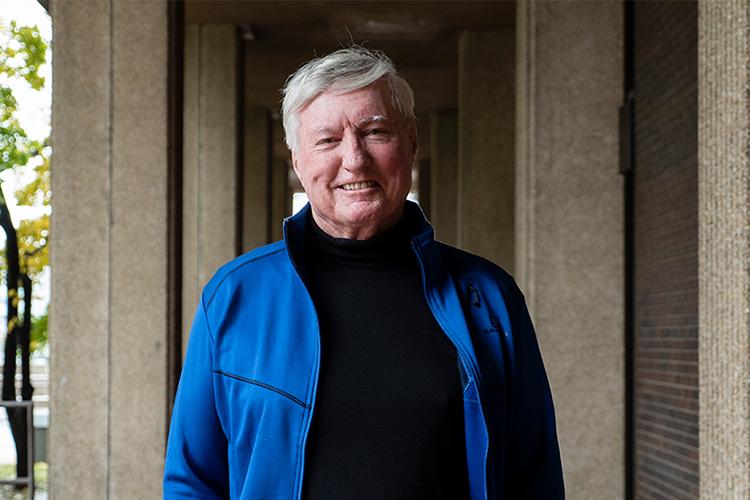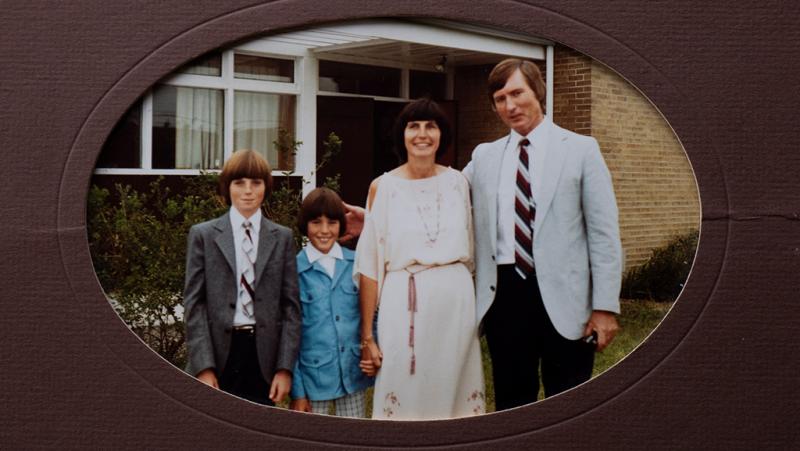November 7, 2018 | Alumni
A history of hope: U of T's oldest graduate on his studies and receiving a degree at 80
By Kaitlyn Balkovec

John Horton (MEd 1980, EdD 2018), pictured here on a ski trip in British Columbia in 2013, is believed to be the oldest member of the University of Toronto's 2018 graduating class (photo courtesy of John Horton)
When John Horton (MEd 1980, EdD 2018) joins his fellow graduates at convocation this week, there will be one thing setting him apart from his classmates—the fact that he is receiving his degree at 80 years old.
On November 8, the octogenarian graduates with a Doctor of Education from OISE, making him U of T’s oldest graduate in 2018.
Before retiring in 1996, Horton held an extensive career in education with positions as a teacher, department head, teacher-trainer, principal, school superintendent and textbook author.
Ten years ago, he became a full-time student in the Doctor of Education program at OISE and began graduate courses focused on media, the philosophy of emotion and the intellectual history of hope.
Professor Megan Boler, who acted as Horton’s dissertation supervisor, says that his avid dedication to his research was inspiring.
“While I don’t wish the onerous labour of a dissertation on just anyone, in John’s case I saw in his project an important intellectual history and philosophical undertaking,” she said. “His work reflects an original and significant contribution to the philosophy of education and it was a pleasure to work with someone so determined and committed to the life of the mind.”
Horton shared what inspired him to return to post-secondary education, what he enjoyed most about his studies, and why the experience was so special.

At what age did you begin your studies?
While I began ten years ago, my studies were preceded over several decades of intermittent academic work, dating back to involvement with graduate work at Queens University, where I completed an MA thesis in humanities. In the early 80s, I completed my MEd and preliminary doctoral work at OISE. My full-time study in this program began in 2008 by taking a new slate of courses, their content based largely on exploring a problem of significance upon which to build a dissertation.
Can you tell us about your graduate work/research?
I focus on the relation of hope to public education and democracy within the United States, their symbiotic relationship and how they ideally can and must work in close harmony for their dynamic mutual benefit.
There is close affinity of hope and dream. I trace the history of hope, from its origins to its democratic role in New World Settlement and the values and ideals that informed early governance, presidents, education and cultural leaders.
The ideals of the American Dream—equality and liberty—and their implication for honouring fairness and dignity for all, were expressed in the U.S. Declaration of Independence. Given their many overlapping values and dynamics, these ideals are essential ingredients in creating robust public education and strong democracy. Today, those ideals are desperately in need of restoration, bolstering, awakening and application.
What do you hope to achieve with this work, and what sparked your interest in doing this work?
My work was primarily prompted by the need for self-fulfillment, curiosity about the challenge, and testing of my capabilities. I have no knowledge of where my qualification will lead, but am immensely enjoying the existential moment, and getting on with other neglected dimensions of my life. It is fun to continue to explore the unknown in realms that give meaning to one’s life. For me, spending more time with my family, friends, and wife, getting back into sports, travelling, piano playing, and participating in community commitments are my immediate prospects.
What have been some of your most rewarding or memorable moments at OISE and U of T?
Roaming into different faculties has allowed me to further explore personal interests in sociology, anthropology and theology, mythology and history, as well as interact with fellow students and staff across the university.
I was very fortunate to have a totally supportive and creative mentor in professor Megan Boler, who oversaw my dissertation and gave inspiring advice at every stage. During my studies, some of my highlights at OISE were the supportive dissertation team of scholars, especially my talented and ever-helpful Thesis Committee, professors Eric Bredo and Lauren Bialystok. I had wonderful administrative support at all levels. And on the family front, my two sons came to my rescue to shore up my primitive computer skills.

What makes getting this degree special to you?
The level of challenge of my thesis topic, the discipline that graduate studies requires, the emotional and intellectual support I received, and the encouragement from my mentor, family and friends all made for a memorable experience as I completed my degree.
A prerequisite bonus would surely be having a wonderfully understanding and supportive life partner who puts up with and inevitably shares in the rigours involved. For me, much of my doctoral study, from research to writing, was a solitary pursuit, and my wife Carolyn indulged my often reclusive behavior.
What advice would you give to older students who may be considering returning to higher education later in their lives?
At any age, in the humanities—the domain of my thesis—I would think success follows a love of writing, rather strong expressive skills, a vibrant research aptitude, a creative impulse, and a combination of luck and skill in finding one’s ideal mentor. My advice would be to ensure that you have some resolve and reasonable health to stay the course, as well as a good support system around you.